Portugal is located on the Iberian Peninsula and is a southern European country that borders Spain.
Its culture is highly influenced by its position next to the Atlantic Ocean.
The architecture dates back to between the 1500s and the 1800s. Its national dishes include grilled sardines and salted cod.
There are many reasons to love this country, such as the fact that it has been ranked one of the safest countries to live in by the Global Peace Index in 2019.
Or its cuisine, which includes very fresh ingredients such as seafood and sun-ripened fruit.
But beware, this type of cuisine does not travel well.
Hoping to make the move to Portugal?
Here are a few of the top advantages and disadvantages of living in this country.
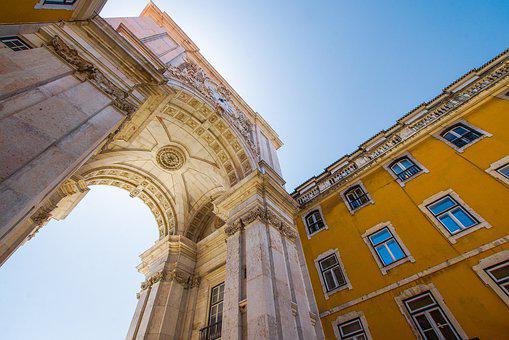
Contents
Pros of Living in Portugal
1. Climate
Portugal is a small country with a size of 92 212 km².
But, the climate does differ quite a bit between the north and the south.
Overall, the summers in Portugal are warm, dry, and mild with an average year-round temperature of approximately 47°F to 83°F.
The country rarely gets colder than 40°F or hotter than 94°F.
Autumn and spring are both mild in temperature.
The warmer seasons are from June through September and the average temperature during this time is 78°F.
The coldest months of the year are between January and March and the northern part of the country does experience some snow.
Overall, the country has a very pleasant climate for most of the year, which makes it an ideal destination to live in.
2. Low crime rate
This is an ideal country to raise a family in.
The crime rate in Portugal is relatively low and violent crime is almost non-existent.
According to rankings by the Vision of Humanity’s 2021 Global Peace Index, Portugal is ranked as the sixth safest country to live in, globally.
A large contributing factor to peace and safety in the country has to do with the political climate and the fact that it has been quite stable for many years now.
In addition, the overall crime rate in Portugal is the lowest in Europe and it has held this position for quite some time.
So, if safety is a concern for you, then you have little to worry about when making the move to Portugal.
3. English is the second language in Portugal
Usually, moving to a foreign country requires that the ex-pats acclimate to the culture and learn the official language of the country.
In countries like France and Italy, this may pose a big problem as a large part of your success will be attributed to your ability to learn the language, as English is not the official language and few residents speak it fluently in these countries.
However, in Portugal, English is widely spoken, especially in the bigger, more popular cities like Lisbon and Algarve.
Therefore, ex-pats are not required to learn Portuguese in order to get by in this country.
But it would not hurt to immerse yourself in the culture and language.
Especially when living in some of the more rural areas, where tourists do not visit as often and English is not as prevalent.
4. Pace of life
Portugal is generally known for its laid-back, easy, slow pace of life.
This is very appealing to mid to older generations who do not want to live in big, overcrowded cities.
You will quickly notice how slow the pace of life is here when you see that locals are rarely in a hurry.
This can be a disadvantage as well, as the locals are also not as punctual as in more metropolitan cities.
However, this lifestyle is ideal for raising a family or for retiring.
5. Good education
The education system in Portugal is one of the better systems in the world.
The standard of education in this country is excellent.
There are some international schools that offer schooling in English.
Especially in the bigger metropolitan cities like Lisbon.
There are a variety of schools, universities, and international schools in Portugal to choose from.
The system includes free state schools and private schooling.
The structure of education in this country can be categorized as follows:
- Pre-school education: ages 3 to 6
- Primary education: ages 6 to 15
- Secondary education: ages 15 to 18
- Higher education: ages 18 and above
6. Cost of living
Portugal is one of the cheaper countries to reside in western Europe.
You could get by on a monthly salary of around €1,500 per month.
This, of course, will depend on which part of Portugal you live in.
The rural areas have a much lower cost of living than the metropolitan cities.
In comparison to other larger countries, living in Portugal is very affordable, from housing, groceries, and utilities, to education, and even some luxuries.
Keep in mind that the salaries do match the cost of living in this country.
So, you may need to live frugally if you earn a lower income.
7. The food
This is a topic that is up for debate.
Some say that the food is amazing and fresh in Portugal, while others complain that the food is bland and is made to taste better by adding salt.
However, there are plenty of reasons to love the cuisine in Portugal.
The ingredients are always fresh.
The main protein is usually seafood.
The food is inspired by the Mediterranean.
The food can be described as somewhat spicy, warm, and sometimes a bit of a surprise.
Cons of Living in Portugal
1. Too many tourists
As can be expected, with such a lovely year-round climate, delicious food, and hospitable residents, Portugal is a mega attraction for tourists all year long.
Many Brits love to come here during their winter time to bask in the sun and work on their tan.
But, the downside to that is that everything always feels a bit crowded.
In fact, this small nation had a whopping 4 million tourists in 2020.
Tourists flock here to see the beautiful, historic landmarks, lie on the beaches, enjoy the cuisine, and visit religious sites.
It may feel overcrowded at times.
The reason for this is the fact that the cities are not designed for the large influx of people.
The streets are narrow and the cities are very compact.
It is quite unpleasant to visit historical sites when there are so many tourists.
2. Smoking in public spaces
While smoking inside restaurants, bars, and other indoor spaces has been banned since 2008, there is no ban on smoking in public spaces as there is in other European countries.
There are still some establishments that designate areas inside a restaurant or bar for smokers.
This has not yet completely been phased out.
3. The ocean is very cold
Surprisingly, you will find that even though the country does enjoy a warm climate, the ocean is very cold.
This is primarily due to the Nortada that blows in the summertime, making the ocean colder in certain spots.
The Nortada is a weather phenomenon that is typical of the coast of Portugal where the wind blows on the surface of the ocean, causing the colder water below to upwell to the surface.
The best time to go to the beach and swim in the ocean is around June and July and the worst time is during August.
4. Scary drivers
There are bad drivers all over the world, but in Portugal, this style of driving is more often attributed to being a cultural phenomenon.
You will often find that indicators are not used.
There is a lot of drinking and driving, people flashing you in order to overtake, or even tailgating.
This can be downright scary if you are not used to this kind of driving.
Furthermore, you will often find bad parking where a driver will park a vehicle over two parking spaces, or even worse, touch parking.
It is definitely something to get used to.
But, if you are a nervous driver, it may take a while longer.
5. Bad customer service
In Portugal, the customer is not always right.
In fact, the customer is rarely right.
The country has a bit of a reputation for bad customer service, across the board.
Sales assistants will rarely go out of their way to help you, apart from what is their immediate responsibility on the job.
Forget about getting anyone to get back to you.
The slow pace of life means there is little sense of urgency when dealing with clientele.
In addition, representatives seem to have a “do not really care” attitude when dealing with customers.
This can be very frustrating if you come from a country where customer service is a priority.
6. Cold winters
Some of the northern parts of the country experience much colder weather during the winter, often getting an inch or three of snow.
This part of the country can get quite damp and wet during the winter.
And, because the housing is much older, you will find that they do not have insulation or heating, which could make the homes much colder inside than outside during the winter times.
But, generally speaking, the winter is a lot more chilly in the north than it is in the south.
If milder whiners are a priority for you, then you may want to consider the location and housing before you make the move.
Madeira has quite a mild winter that is much more bearable and less wet.
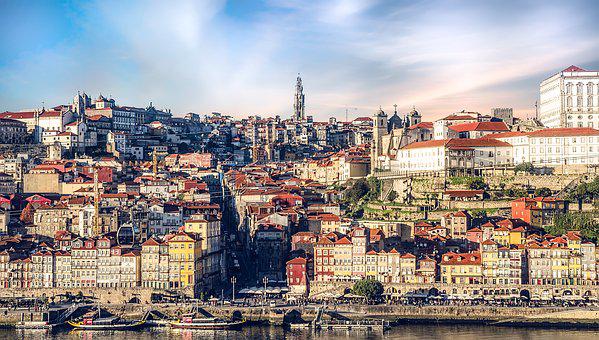
Pros and Cons of Living in Portugal – Summary Table
| Pros of Living in Portugal | Cons of Living in Portugal |
|---|---|
| 1. Climate | 1. Too many tourists |
| 2. Low crime rate | 2. Smoking in public spaces |
| 3. English is the second language in Portugal | 3. The ocean is very cold |
| 4. Pace of life | 4. Scary drivers |
| 5. Good education | 5. Bad customer service |
| 6. Cost of living | 6. Cold winters |
| 7. The food |
Portugal Safety Overview
READ THE FULL REPORT: Portugal Safety Review
Safety Index:
- OVERALL RISK: LOW
- TRANSPORT & TAXIS RISK: LOW
- PICKPOCKETS RISK: LOW
- NATURAL DISASTERS RISK: LOW
- MUGGING RISK: LOW
- TERRORISM RISK: LOW
- SCAMS RISK: MEDIUM
- WOMEN TRAVELERS RISK: LOW
Frequently Asked Questions
What is this country most known for?
Portugal is famous for many of its seafood dishes, 16th to 19th-century architecture, as well as historical cities, soccer legends, and outstanding wine.
What is the top rated tourist attraction in Portugal?
Oceanário de Lisboa, Lisbon.
This is the world famous aquarium in Lisbon that highlights the vast variety of world marine life.
Is Portugal safe?
Yes, Portugal is probably one of the safest countries to live in in the world.
Keep in mind, that there is still a crime, but it is limited to petty crime.
What is the official language of Portugal?
Portuguese is the official language.
However, Portugal is the seventh most proficient speaker of English as a second language in the world.
How old is Portugal?
It is the oldest country in Europe.
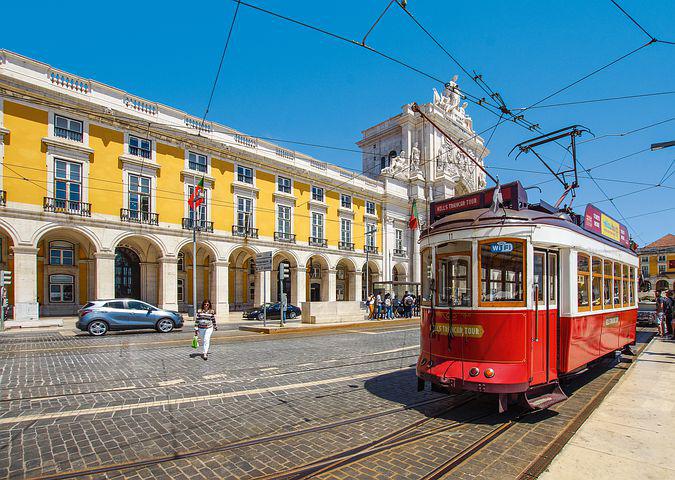

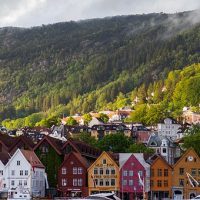
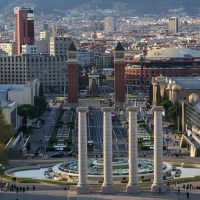








Portugal is great for tourism, but not so great for living. A house in Lisbon goes from 800 to 2000€ (studios for 800€ and rooms only for 400-700€) even in the surroundings of Lisbon the houses are not cheap. The minimum salary is 700/800€ and the monthly expenses like (internet, tv, gas, water ect) are not cheap. Fuel is ridiculously high priced. And the public transportations are great but no excellent (and now they’re on strike very often). But our winters are not really cold, just put on a nice coat and they are very easily to get thru. Eating out is not really expensive. And the supermarkets for natives and compared to previous years are really high priced but for someone from the US or from another place in Europe supermarkets are affordable too.
Portugal has loads of nightlife, we have discos opened most of the week from 00 to 6/7 am. The beaches are amazing, specially the least known ones, and the water is not THAT cold.
We do smoke a lot, everywhere.
If you like football we have a great football culture, and our beer is one of the best in the world (SuperBock is better than Sagres).
If you’re racist do not come to Portugal because we do have loads of diversity.
If you have more than 50yo and expect to find work here, you won’t.
Overall if you receive a good income you can have a really good life here because if you can pay for it (natives can’t) portugal is really amazing. But if you come here looking for a job and expect to live a good life or do you do that in the interior of the county, where the access to hospitals, transportation and services is a little worst, but it’s cheaper to live, or if you come to the capital and to the main cities and you don’t have a good income you’ll struggle a lot to pay rent, services and all that.
100% true. Nothing to add.
Just to add about healthcare, it exists. The public system isn’t great, but still exists and costs you ~15% of the salary a month as part of tax. Private one is better for sure, but costs higher and waiting for a slot might take months (depending on a doctor you need).
Nice summary; but not a word about health care.
Being one of the best Romania immigration consultant in UAE, we at EU Citizen aspire to be the top immigration consultants and the most trustworthy immigration firm in the UAE.
I am extremely disappointed with many of the Portuguese on how unreliable, undependable and untrustworthy they are. They keep on making promises that they don’t keep and keep playing mind games for no good reason. Promise after a promise after a promise and never do anything about it, be it the work to be done or the money to be paid in rent an so on. Extremely disappointed with a big part of the nation. Perhaps people are like that everywhere now, but I do not respect such behaviour and will not put up with it.